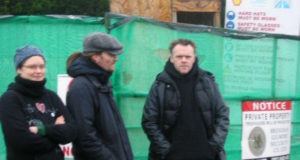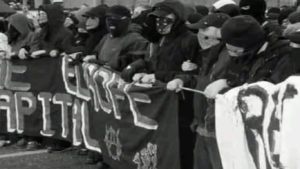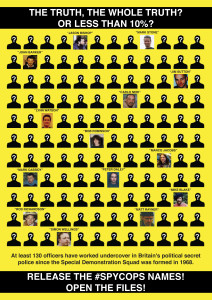
Political spying is not new. The Metropolitan Police founded the first Special Branch in 1883. Initially focusing on Irish republicanism in London, it rapidly expanded its remit to gather intelligence on a range of people deemed subversive. Other constabularies followed suit.
But in 1968, the Met did something different. The government, having been surprised at the vehemence of a London demonstration against the Vietnam War, decided it had to know more about political activism. The Met were given direct government funding to form a political policing unit, the Special Demonstration Squad (SDS).
About twelve officers at a time would change their identities, grow their hair and live among those they spied on for years at a time. They would ‘become’ activists, each infiltrating a particular group on the far left, far right or in other areas of dissent such as the peace movement and animal rights. They were authorised to be involved in minor crime.
The police and the secret state have always used informers, and even private investigators, as part of their surveillance work. However, the SDS was unique in being a police unit set up to focus on political groups with extended periods of deployment. The model was rolled out nationally in 1999 with the creation of the SDS off-shoot, the National Public Order Intelligence Unit (NPOIU).
The Campaign Opposing Police Surveillance is primarily concerned with these dedicated political secret police – the long-term, deep-cover officers of the SDS, the NPOIU, and the successor units that subsumed them and their roles.
It’s generally accepted that there have been around 150 of these undercover officers since the SDS was formed in 1968. This figure comes from work by the Undercover Research Group and activists, and extrapolation from details in official reports.
Operation Herne, the Met’s self-investigation into the spycops scandal, said in July 2013
‘To date Operation Herne has verified one hundred and six (106) covert names that were used by members of the SDS.’
This is just the SDS. Last year, Mark Ellison’s report into spycops causing miscarriages of justice asked about the NPOIU, which ran from 1999-2011.
‘Operation Herne has identified fewer than 20 NPOIU officers deployed over that period’
However,
‘Operation Herne’s work to investigate the nature and extent of the undercover work of the NPOIU was only able to begin in November 2014 and has barely been able to ‘scrape the surface’ so far’.
There may well be more spycops from either or both units.
Other, similarly hazy, approaches arrive at a similar number. The SDS ran for 40 years and is understood to have had around 12 officers deployed at any given time, usually for periods of four years. This would make a total of 96 undercover officers. However, it’s known that some officers were active for a fraction of the usual time, so the real figure will be somewhat higher.
Assuming the same scale for the NPOIU gives a total of 36 officers. That is a fuzzy guess though – the NPOIU was a new, national unit and may have deployed more officers.
[UPDATE July 2019: There are now known to have been at least 139 undercover officers – see detail at the end of this article]
The Operation Herne report from 2013 said that, of the 106 identified SDS officers, 42 stole the identity of a dead child, 45 used fictitious identities, and 19 are still unknown. The practice of stealing identities was mandatory in the unit for about 20 years until the mid-1990s. The NPOIU, starting in 1999, is only known to have stolen a dead child’s identity for one officer, Rod Richardson.
WHAT HAPPENED NEXT?
There are certainly some more spycops from the successor units.
The Met merged its Special Branch (including subsidiaries like the SDS) with its Anti-Terrorist Branch in October 2006 to form Counter Terrorism Command. They reviewed and shut down the SDS in 2008.
Although the NPOIU used a number of Met Special Branch officers, from 2006 it was overseen by the Association of Chief Police Officers as part of their National Domestic Extremism Unit (NDEU). In 2012, the NDEU was also absorbed into the Met’s Counter Terrorism Command. At the same time, the NDEU changed its name and stopped having any responsibility for undercover officers.
Last November the Met’s Assistant Commissioner Martin Hewitt issued an abject apology to eight women deceived into relationships with undercover officers. Two months later Carlo Neri, another officer who had similar relationships, was exposed. Assistant Commissioner Hewitt assured the BBC that the Met
‘no longer carries out ‘long-term infiltration deployments’ in these kinds of groups but would accept responsibility for past failings’
That appears to contradict a 2013 report by HM Inspectorate of Constabulary. It plainly says today’s spycops are deployed by the Met’s Counter Terrorism Command and similar regional units.
‘The NDEU restructured in January 2012, and now operates under the umbrella of the MPS Counter Terrorism Command (which is known as SO15). NDEU has also recently been renamed, and is now called the National Domestic Extremism and Disorder Intelligence Unit (NDEDIU)…
‘The NDEU’s remit changed at the same time as its restructure and no longer carries out any undercover operations. All deployments of undercover officers which target the activity of domestic extremists are coordinated either by the SO15 Special Project Team (SPT), or by one of the regional SPTs…
‘The SPTs are in the North West, North East and West Midlands Counter Terrorism Units, and the Counter Terrorism Command in London.’
HOW MANY SPYCOPS ARE KNOWN?
There are 17 [UPDATE September 2019: now 76] spycops who have been named. There are strong suspicions about several more. Fifteen of the seventeen have been exposed by their victims. One has been exposed by journalists, one by the officer himself – Peter Francis, the only whistleblower. None have come from the police.
Journalists – notably Rob Evans and Paul Lewis at the Guardian – have substantially fleshed out the activists’ research. The Met recently claimed to be having trouble even sorting their records into order. If that is true then perhaps the best bet would be to allow these tenacious activists and journalists, who have done such sterling work despite police obstructions, to come and have a go.
Although the 17 spycops’ identities are properly established, with most of them having extensive details and numerous photos in the public domain, the Met are reluctant to give any further information.
Until the cover names are known, the majority of people targeted don’t even know it happened. Waiting for victims to investigate and gather evidence is a denial of justice. This is why most people granted ‘core participant’ status at the forthcoming public inquiry – mostly activists confirmed as significantly affected – have called for the release of all cover names and the names of the groups who were spied upon.
The Met say they must ‘neither confirm nor deny’ that anybody was ever an undercover officer (for a demolition of their ‘policy’ of Neither Confirm Nor Deny, you cannot do better than Helen Steel’s superb speech to the Pitchford Inquiry into undercover policing). On many occasions they have even refused to refer to Mark Kennedy by name, as if it’s still a secret. This came long after he hired Max Clifford to sell his story for a tabloid front page splash, which is about as unsecret as it’s possible to get.
After three years of legal wrangling, in August 2014 courts forced the Met to admit that Jim Boyling and Bob Lambert were spycops (again, long after both officers had personally talked to the media).
In March 2014 the Met’s Operation Herne produced an 84 page report concerning SDS whistleblower Peter Francis’ revelations about spying on the family of Stephen Lawrence. It said it
‘will not confirm or deny if Peter Francis was an undercover police officer’
As if they might devote all that time and effort to the ramblings of a fantasist.
It’s an insult to those who have been abused. It’s also a double injustice familiar to other victims of state wrongdoing – there’s what the state does, then how it pours resources to smear, lie and obstruct justice for its victims.
This doesn’t bode well for the forthcoming public inquiry.
Today, Kennedy, Lambert and Boyling are still the only three spycops the Met will officially admit to. Here is the list of 17.
WHO ARE THE SPYCOPS?
- Peter Francis AKA ‘Peter Daley’ or ‘Pete Black’, 1993-97.
SDS. Self-disclosed. Initial exposure March 2010, real name given June 2013
- Jim Boyling AKA ‘Jim Sutton’, 1995-2000.
SDS. Exposed by activists, January 2011
- ‘Marco Jacobs’, 2004-09.
NPOIU Exposed by activists, January 2011
- Mark Jenner AKA ‘Mark Cassidy’, 1995-2000
SDS. Exposed by activists, January 2011. Real name given March 2013
- Bob Lambert AKA ‘Bob Robinson’, 1984-89.
SDS. Exposed by activists, October 2011
- ‘Lynn Watson’, 2002-08
NPOIU Exposed by activists, January 2011
- ‘Simon Wellings’, 2001-07.
- SDS. Exposed by activists 2005, publicised March 2011
- ‘Rod Richardson’, 1999-2003.
NPOIU. Exposed by activists, February 2013
- John Dines AKA ‘John Barker’, 1987-91.
SDS. Exposed by activists, February 2013
- ‘Matt Rayner‘, 1991-96.
SDS. Exposed by activists, 2013
- Mike Chitty AKA ‘Mike Blake’, 1983-87.
SDS. Exposed by journalists, June 2013
- ‘Jason Bishop’, 1998-2006.
SDS. Exposed by activists, July 2013
- ‘Carlo Soracchi’ AKA ‘Carlo Neri’, 2000-06.
SDS. Exposed by Undercover Research Group in conjunction with activists, January 2016
- ‘RC’ (full alias withheld), 2002-06.
NPOIU? Exposed by Undercover Research Group in conjunction with activists, February 2016
- ‘Gary R’ (full alias withheld), 2006-10.
NPOIU? Exposed by Undercover Research Group in conjunction with activists, July 2016
- ‘Abigail L’ (full alias withheld), 2006-08.
NPOIU? Exposed by Undercover Research Group in conjunction with activists, July 2016
UPDATE March 2017:
18. Roger Pearce AKA ‘Roger Thorley’, 1979-84.
SDS. Self-disclosed under real name 2013, full identity confirmed by UndercoverPolicing Inquiry, March 2017
UPDATE May 2017:
19. Andy Coles AKA ‘Andy Davey’, 1991-95.
SDS. Exposed by Undercover Research Group in conjunction with activists, May 2017
UPDATE July 2017:
20. ‘Mike Ferguson’
SDS. Exposed in BBC True Spies documentary, 2002 [transcript, video]
UPDATE August 2017:
21. ‘John Graham’, 1968-69.
SDS. Exposed by Undercover Policing Inquiry, August 2017
22. ‘Rick Gibson’, 1974-76.
SDS. Exposed by Undercover Policing Inquiry, August 2017
23. ‘Doug Edwards’, 1968-71.
SDS. Exposed by Undercover Policing Inquiry, August 2017
UPDATE October 2017:
24. ‘William Paul ‘Bill’ Lewis’, 1968-69.
SDS. Exposed by Undercover Policing Inquiry, October 2017
UPDATE February 2018:
25. ‘John Clinton’, 1971-74.
SDS. Exposed by Undercover Policing Inquiry, February 2018
26. ‘Alex Sloan’, 1971-73.
SDS. Exposed by Undercover Policing Inquiry, February 2018
27. ‘Christine Green’, 1994-99.
SDS. Exposed by Undercover Research Group in conjunction with activists, February 2018
28. ‘Bob Stubbs’, 1971-76.
SDS. Exposed by Undercover Policing Inquiry, February 2018
29. ‘Dick Epps’, 1969-72.
SDS. Exposed by Undercover Policing Inquiry, February 2018
UPDATE March 2018:
30. ‘Don de Freitas’, 1968.
SDS. Exposed by Undercover Policing Inquiry, March 2018
31. ‘Margaret White’, 1968.
SDS. Exposed by Undercover Policing Inquiry, March 2018
32. ‘Michael Scott’, 1971-76.
SDS. Exposed by Undercover Policing Inquiry, March 2018
UPDATE April 2018:
33. ‘Peter Fredericks’, 1971.
SDS. Exposed by Undercover Policing Inquiry, April 2018
34. ‘Stewart Goodman’, 1970-71.
SDS. Exposed by Undercover Policing Inquiry, April 2018
35. ‘David Robertson’, 1970-73.
SDS. Exposed by Undercover Policing Inquiry, April 2018
36. ‘Bill Biggs’, 1977-82.
SDS. Exposed by Undercover Policing Inquiry, April 2018
37. ‘Alan ‘Nick’ Nicholson’, 1990-91.
SDS. Exposed by Undercover Policing Inquiry, April 2018
38. ‘Dave Hagan’, 1996-2001.
SDS. Exposed by Undercover Policing Inquiry, April 2018
39. ‘Jacqueline Anderson’, 2000-05.
SDS. Exposed by Undercover Policing Inquiry, April 2018
40. ‘Ross ‘RossCo’ MacInnes’, 2007.
SDS. Exposed by Undercover Policing Inquiry, April 2018
UPDATE May 2018:
41. ‘Barry Morris’, 1968.
SDS. Exposed by Undercover Policing Inquiry, May 2018
42. ‘Gary Roberts’, 1974-78.
SDS. Exposed by Undercover Policing Inquiry, May 2018
43. ‘Tony Williams’, 1978-82.
SDS. Exposed by Undercover Policing Inquiry, May 2018
44. ‘Malcolm Shearing’, 1981-85.
SDS. Exposed by Undercover Policing Inquiry, May 2018
45. ‘Dave Evans’, 1998-2005.
SDS. Exposed by activists, February 2014
46. ‘Mike Hartley’, 1982-85.
SDS. Exposed by Undercover Policing Inquiry, May 2018
UPDATE JUNE 2018:
48. ‘Darren Prowse’ (apparently never deployed), 2007.
SDS. Exposed by Undercover Policing Inquiry, June 2018
49. ‘Phil Cooper’, 1979/80-83.
SDS. Exposed by Undercover Policing Inquiry, June 2018
50. ‘Peter Collins’, 1973-77.
SDS. Exposed by Undercover Policing Inquiry, June 2018
51. ‘Alan Bond’, 1981-86.
SDS. Exposed by Undercover Policing Inquiry, June 2018
52. ‘Sean Lynch’, 1968-74.
SDS. Exposed by Undercover Policing Inquiry, June 2018
53. ‘John Kerry’, 1980-84.
SDS. Exposed by Undercover Policing Inquiry, June 2018
54. ‘Jeff Slater’, 1974-45.
SDS. Exposed by Undercover Policing Inquiry, June 2018
55. ‘Vince Miller’, 1976-79.
SDS. Exposed by Undercover Policing Inquiry, June 2018
56. ‘Colin Clark’, 1977-82.
SDS. Exposed by Undercover Policing Inquiry, June 2018
57. ‘Timothy Spence’, 1983-87.
SDS. Exposed by Undercover Policing Inquiry, June 2018
58. ‘Mark Kerry’, 1988-92.
SDS. Exposed by Undercover Policing Inquiry, June 2018
59. ‘Barry Tompkins’, 1979-83.
SDS. Exposed by Undercover Policing Inquiry, June 2018
60. ‘Alan Nixon’, 1969-72.
SDS. Exposed by Undercover Policing Inquiry, June 2018
UPDATE JULY 2018:
61. ‘Kathryn Lesley (‘Lee’) Bonser’ 1983-87.
SDS. Exposed by Undercover Policing Inquiry, July 2018
62. ‘Michael James’ 1978-83.
SDS. Exposed by Undercover Policing Inquiry, July 2018
62. ‘Graham Coates’ 1976-79.
SDS. Exposed by Undercover Policing Inquiry, July 2018
63. ‘Kevin Douglas’ 1987-91.
SDS. Exposed by Undercover Policing Inquiry, July 2018
64. ‘Roger Harris’ 1974-77.
SDS. Exposed by Undercover Policing Inquiry, July 2018
65. ‘Desmond Loader’ / ‘Barry Loader’ 1977-78.
SDS. Exposed by Undercover Policing Inquiry, July 2018
UPDATE AUGUST 2018:
66. ‘Nicholas Green’ 1982-86.
SDS. Exposed by Undercover Policing Inquiry, August 2018
UPDATE SEPTEMBER 2018:
66. ‘Ian Cameron’ 1971-72.
SDS. Exposed by Undercover Policing Inquiry, September 2018
67. ‘James Straven’ / ‘Kevin Crossland’ 1997-2002.
SDS. Exposed by Undercover Policing Inquiry, September 2018
UPDATE DECEMBER 2018:
68. ‘Rob Harrison’ 2004-07
SDS. Exposed by Undercover Policing Inquiry, December 2018
69. ‘David Hughes’ 1971-76
SDS. Exposed by Undercover Policing Inquiry, December 2018
UPDATE JANUARY 2019:
70. ‘Edward David Jones’ aka ‘Edge’, ‘Dave’ & ‘Bob the Builder’ 2005-07.
SDS & NPOIU. Exposed by Undercover Policing Inquiry, January 2019
UPDATE FEBRUARY 2019:
71. ‘Neil Richardson’ 1989-93
SDS. Exposed by Undercover Policing Inquiry, February 2019
UPDATE MARCH 2019:
72. ‘Stefan Wesolowski’ 1985-88.
SDS. Exposed by Undercover Policing Inquiry, March 2019
UPDATE MAY 2019:
73. ‘Geoff Wallace’ 1975-78.
SDS. Exposed by Undercover Policing Inquiry, May 2019
74. ‘Paul Gray’ 1977-82.
SDS. Exposed by Undercover Policing Inquiry, May 2019
UPDATE JULY 2019:
75. ‘Anthony “Bobby” Lewis’ 1991-95.
SDS. Exposed by Undercover Policing Inquiry, July 2019
UPDATE SEPTEMBER 2019:
76. ‘Jim Pickford’ 1974-76
SDS. Exposed by Undercover Policing Inquiry, September 2019
UPDATE July 2017: How many spycops have there been?
In February 2017 the National Police Chiefs Council told the Inquiry
The current position is that there are believed to have been 118 undercover officers engaged in the SDS, and a further up to 83 management and ‘backroom’ staff.
In April 2017 the Inquiry said
The Inquiry has written to 54 former members of the National Public Order Intelligence Unit who are believed to have been either undercover police officers or cover officers (26 undercover officers and 28 cover officers).
This makes a total of at least 144 undercover officers in the two units (it should be noted that the Inquiry may not have written to all NPOIU officers).
UPDATE JULY 2019:
The Undercover Policing Inquiry’s Eighth Update Note said there were 117 undercover officers in the SDS, and a further 22 in the NPOIU, making a total of 139.
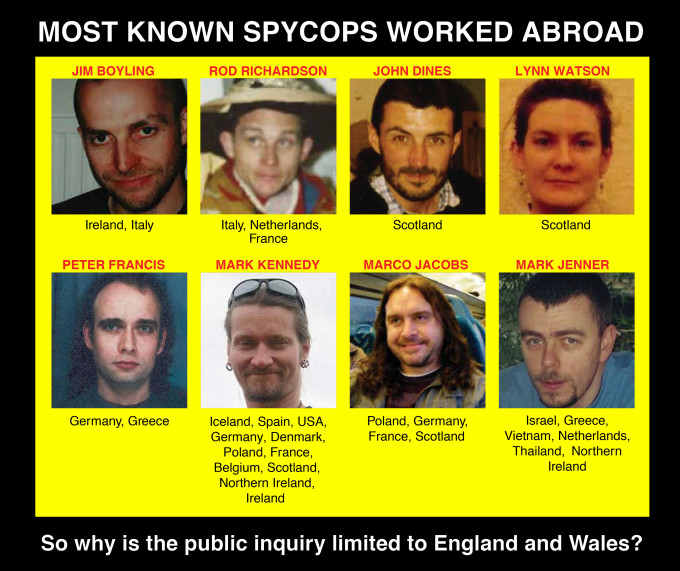 As children in school we are taught that the best way to organise a nation in the interest of its citizens is with a democratic system, and that this system can’t be flawed because of its checks and balances. Yet recently the Irish government has been proving that the opposite is true, it is operating to protect itself and its security apparatus against the best interests of the people.
As children in school we are taught that the best way to organise a nation in the interest of its citizens is with a democratic system, and that this system can’t be flawed because of its checks and balances. Yet recently the Irish government has been proving that the opposite is true, it is operating to protect itself and its security apparatus against the best interests of the people.
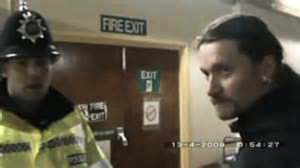
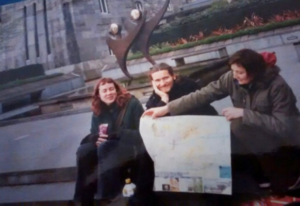
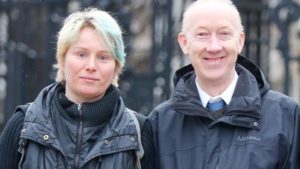
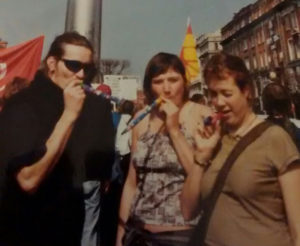
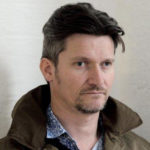
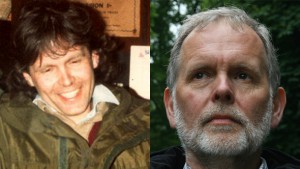
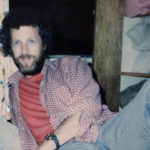

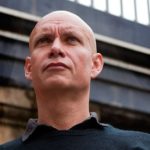
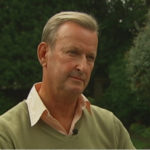
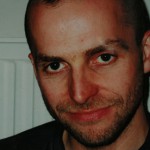
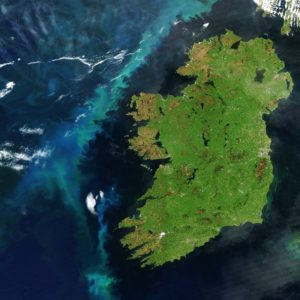 Of the thousands of people targeted by Britain’s political secret police, around 180 were known to be so significantly impacted that they have been granted ‘core participant’ status at the forthcoming
Of the thousands of people targeted by Britain’s political secret police, around 180 were known to be so significantly impacted that they have been granted ‘core participant’ status at the forthcoming 